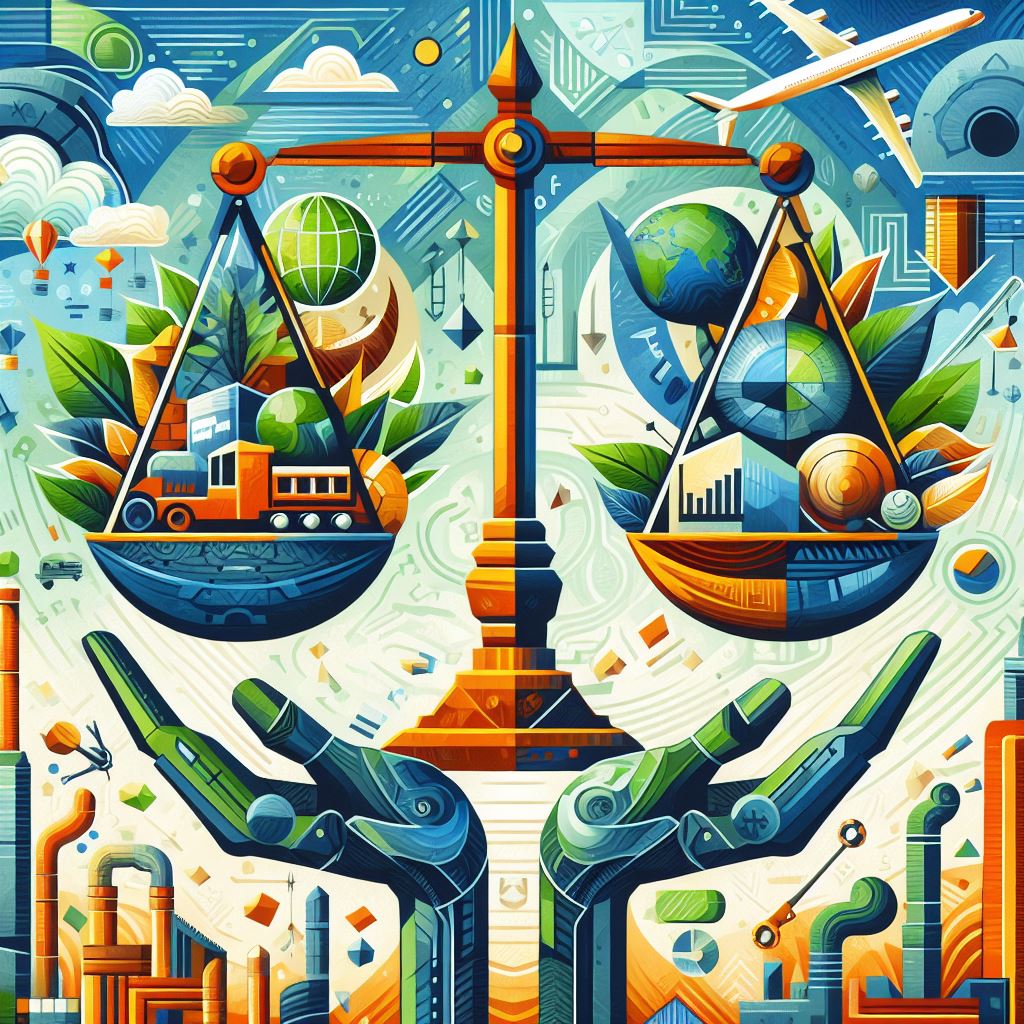Our world is more connected than ever before. This “globalization” brings both benefits and challenges, just like trying to ride a bike – it can be fun and exciting, but it also requires balance and attention to avoid bumps along the way.
Globalization’s upsides: Imagine a delicious pizza. The cheese might come from one country, the tomatoes from another, and the baker who made it learned from someone across the ocean. Globalization allows countries to share knowledge, goods, and services, which can lead to:
- Economic growth: More trade means more jobs and opportunities for people around the world.
- Cultural exchange: We learn about different cultures through food, music, and art, making the world a more interesting place.
- Technological advancement: Sharing ideas and innovations helps societies develop new technologies and solutions to problems.
The flip side of the coin: Just like a bike can wobble if you hit a pothole, globalization can also have downsides:
- Unequal benefits: Not everyone benefits equally. Some countries and businesses might prosper more than others, creating economic inequality.
- Exploitation: In some cases, companies might move their operations to countries with weaker regulations, potentially leading to unfair labor practices or environmental damage.
- Resource depletion: Increased trade and production can put a strain on natural resources, like clean water and minerals, raising concerns about sustainability.
Sustainability: Balancing our needs with the Earth’s: Imagine a beautiful garden. We enjoy its flowers and fruits, but we also need to take care of the soil, water it, and keep it healthy. Just like the garden, our planet needs us to be sustainable, meaning meeting our needs without harming the environment for future generations. Here are some sustainability challenges:
- Climate change: Burning fossil fuels like coal and oil releases greenhouse gases, trapping heat and causing the planet to warm, leading to extreme weather events and rising sea levels.
- Pollution: Waste from factories, farms, and households pollutes air, water, and soil, harming ecosystems and human health.
- Loss of biodiversity: The variety of life on Earth, from plants and animals to microorganisms, is crucial for a healthy planet. However, human activities like deforestation and unsustainable fishing threaten this biodiversity.
Finding common ground: Both globalization and sustainability present complex challenges, but they are not completely at odds. We can strive for a more balanced and sustainable future by:
- Promoting fair trade practices: Ensuring that everyone benefits from global trade, including workers and the environment.
- Investing in green technologies: Developing and using technologies that are less harmful to the environment.
- Changing our consumption habits: Choosing sustainable products, reducing waste, and being mindful of the resources we use.
By working together, we can navigate the challenges of globalization and build a more sustainable future for everyone. Remember, just like riding a bike, it takes practice and teamwork to maintain balance and reach our destination.
#curiousminds
